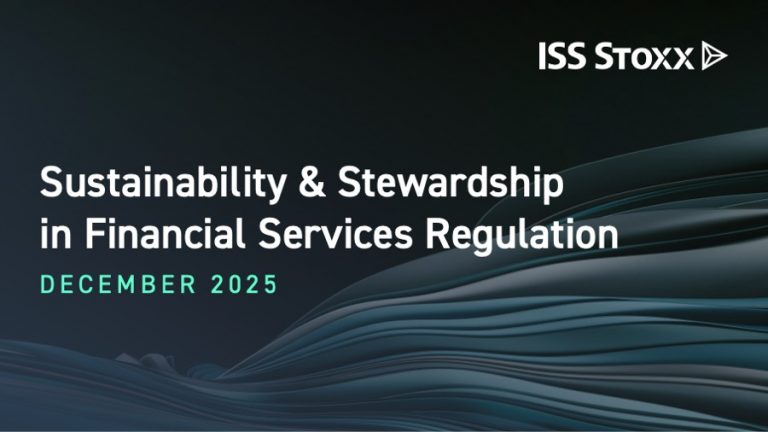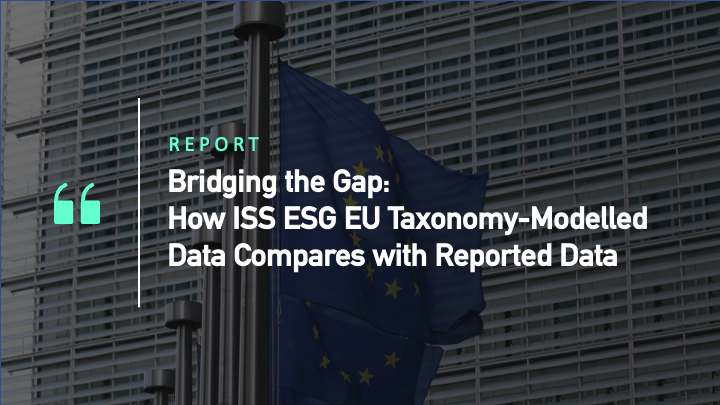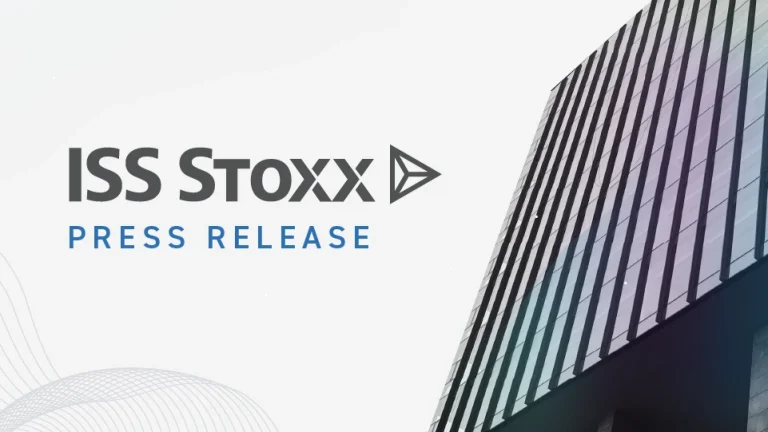International
ISSB
International Financial Reporting Standards Foundation and International Finance Corporation Agree to Partnership on Sustainable Reporting
On June 27, the International Financial Reporting Standards (IFRS) Foundation and the International Finance Corporation (IFC), a member of the World Bank Group, signed a memorandum outlining their plans to improve climate and sustainability corporate reporting in emerging markets and developing economies. The IFRS Foundation and IFC intend to work jointly on projects to enhance the capacity of emerging markets and developing economies to adopt and consistently apply the sustainability-related standards issued by the IFRS Foundation’s International Sustainability Standards Board (ISSB). These joint projects will include developing new tools, research publications, training programs, and technical assistance to help jurisdictions adopt and implement the standards.
GRI
Global Reporting Initiative Release Database to Assist Corporates in Reporting on the Sustainable Development Goals
On July 11, the Global Reporting Initiative (GRI) published an updated version of the online database “Business reporting on the SDGs: An analysis of the Goals and Targets.” Originally launched in 2017 by GRI and the UN to help integrate the Sustainable Development Goals (SDGs) into corporate reporting, the updated database will help businesses aiming to report on SDGs by providing an inventory of potential disclosures based on internationally recognized frameworks and set at the appropriate target level of the SDGs. The updated database is also intended to help interested parties easily access and compare information and disclosure related to the SDGs.
FSB
Financial Stability Board Publishes Report on Regulation and Supervision of Nature-related Risks
On July 18, the Financial Stability Board (FSB) published their “stocktake of member financial authorities’ initiatives related to the identification and assessment of nature-related financial risks.” The report assesses whether authorities are evaluating and regulating nature-related risk as a material financial risk; and how they differ in their assessments of materiality and address data gaps. The report outlines examples of emerging and advanced markets that have begun regulatory initiatives to tackle nature-related financial risk. The report also identifies major data and modelling challenges related to assessing physical and transition risks and advocates for better metrics to measure nature-related financial risk exposure. The report was presented at the July G20 Finance Ministers and Central Bank Governors.
SBTi
Science Based Targets Initiative Launches Consultation on Financial Institution Net-Zero Standard
On July 24, the Science Based Targets initiative (SBTi) launched a public consultation on the “Draft Financial Institutions Net-Zero (FINZ) Standard,” and called for financial institutions to pilot the new standard. The Draft covers SBTi’s proposed standards for financial institutions’ climate-related governance, GHG accounting, portfolio climate-alignment targets, emission-intensive sector targets, and reporting. The consultation survey is open until September 20; SBTi plans to host a webinar on the FINZ draft on August 22.
NGFS
Network for Greening the Financial System Publishes Two Reports on Nature-Related Risks
On July 2, the Network for Greening the Financial System (NGFS) released two complementary reports: a broad, conceptual framework for assessing and supervising nature-related financial risks and a deep-dive into nature-related litigation risks. The NGFS’ first report provides a “common language” to discuss nature-related risks and outlines direct steps for central banks and financial supervisors to integrate oversight of these risks into their activities. The report utilizes illustrative examples to demonstrate how the framework can be used. The NGFS’ second report focuses on emerging trends in nature-related litigation cases. The NGFS noted the recent trend of litigants’ success as a signal of the evolution of legal risk, as well as the “far-reaching consequences” of even the threat of litigation; the NGFS recommend that central banks, supervisors, and financial institutions closely monitor developments in litigation.
UNEP FI
UN Environmental Programme Finance Initiative Provides Banks with Resources to Help Achieve Positive Sustainability Impacts
On July 18, the UN Environmental Programme Finance Initiative (UNEP FI) released a report outlining how banks can utilize the circular economy to address climate change, nature loss, and pollution and deliver on their climate commitments. Banks are encouraged to integrate “circularity” into their own policies and encourage their clients to adopt circular business models. UNEP FI’s report also maps the landscape of new and upcoming circular economy roadmaps and reporting requirements.
Asia Pacific
Japan
Japanese Ministry of Economy, Trade & Industry Releases Interim Reports on Companies’ Disclosure and Corporate Governance Reform
The Japanese Ministry of Economy, Trade & Industry (METI) released two interim reports detailing the results of Round Table Conferences. The first report, released June 25, covers conclusions from the three meetings of the Round Table Conference on “Ideal Approaches to Information Disclosure of Companies: Challenges and Future Direction.” Among the topics explored, METI discussed how corporate disclosure could be advanced and streamlined; compared Japan’s disclosure framework to international standards; and highlighted challenges faced by Japanese corporations. In addition, the Round Table Conference focused on the evolution of corporate disclosure, including sustainability reporting, as a contributor to corporate value in Japan.
The second interim report, released June 26, covers the METI Round Table Conference on “Improving of Sustainable Corporate Value.” The Round Table Conference focused on the challenges faced, and progress made, by Japanese corporates since the Ito Report, a 2014 study examining how to increase corporate value through corporate governance reform. Specifically, the report concludes that “most Japanese companies, with a few notable exceptions, have failed to solve the challenges they face or improve their performance.” The report identifies five challenges based on the Round Table discussions: addressing “gaps in recognition of corporate value” between investors and corporates; emphasizing the importance of long-term management; strengthening corporate management systems; strengthening board effectiveness; and revitalizing capital markets.
Bank of Japan Releases Results of Third Survey on Market Functioning Concerning Climate Change
On July 12, the Bank of Japan (BoJ) published their survey results on how the Japanese financial market, including financial institutions, investors, and corporates, is addressing climate change. The survey included detailed questions on ESG bonds, climate finance, and transition finance. The BoJ concluded from the survey results that climate-risk and opportunity is “priced into both the stock and corporate bond markets in Japan to a certain degree.” Some responders indicated that demand for ESG bonds will likely increase, while others expressed an expectation that “transition finance would not only serve as a means of raising sufficient funds but also help build understanding of the transition among their stakeholders.” The survey results also indicated several challenges for both investors and companies related to the disclosure of climate-related financial information.
Malaysia
Joint Committee on Climate Change Publishes Guidance Notes to Support Small to Medium-Sized Enterprises in Assessing Climate and Environmental Impact
On July 4, the Malaysian Joint Committee on Climate Change (JC3) released Guidance Notes to help financial institutions support small and medium-sized enterprises (SMEs) as they implement Bank Negara Malaysia’s Climate Change and Principle-based Taxonomy. Specifically, the Guidance Notes aim to assist financial institutions and SMEs as they implement JC3’s Due Diligence Questionnaire (DDQ) for guiding principles 3 (“no significant harm to the environment”) and 4 (“remedial measures to transition”) of the taxonomy. The Guidance Notes provide examples, tools, and resources for SMEs to assess climate impacts and remediation efforts across six industries: manufacturing, energy, construction, transportation, waste management, and agriculture.
Indonesia
Otoritas Jasa Keuangan Outlines Reform Plans for Insurance Companies and Pension Funds
On July 9, Otoritas Jasa Keuangan (OJK), the Indonesian Financial Services Authority, held a roundtable to outline four key pillars of reform for the insurance industry and pension funds. OJK explained their efforts will focus on “strengthening capital,” promoting good governance and risk management, improving the “industrial ecosystem,” and adopting “best practices and international standards.” During the roundtable, the Asian Development Bank Institute emphasized the importance of the insurance and pension sector in addressing sustainability topics and climate change risk. OJK is coordinating with the Indonesian government as they pursue mandatory and voluntary programs for pension funds.
OJK Implements Governance Requirement for People’s Economic Banks and Sharia People’s Economic Banks
On July 1, the OJK detailed several implementation-related requirements concerning the governance of the People’s Economic Banks (BPR) and Sharia People’s Economic Banks (BPRS). The requirements mandate “principles and procedures for the implementation of good governance, pillars of governance implementation consisting of shareholder aspects, implementation of duties and responsibilities of the board of directors, implementation of duties and responsibilities of the board of commissioners, [and] completeness of the implementation of duties or functions of the committee….” The requirements are effective July 1.
Korea
Korean Financial Services Commission Outlines Policy Framework for Addressing Climate Change in the Financial Sector
On July 8, Kim Soyoung, Vice Chairman of the Korean Financial Services Commission (FSC), spoke at a seminar focused on future macro trends and policy shifts in the financial sector. With respect to climate change, Vice Chair Kim Soyoung emphasized the financial sector’s role in contributing to GHG reduction and low carbon emissions and outlined the FSC’s strategy to promote green finance. The FSC’s policy framework includes several mitigation initiatives, such as using policy to encourage financial institutions to raise funds to combat climate risk and carrying out stress tests on the financial sector jointly with the Bank of Korea. The FSC also aims to promote innovation by developing climate-related financial products and supporting climate-related technologies.
Australia
Australian Securities & Investments Commission and Australian Prudential Regulation Authority Publish Information on Financial Accountability Regime
On July 11, the Australian Securities and Investments Commission (ASIC) and Australian Prudential Regulation Authority (APRA) published rules and information on how insurers and superannuation trustees should prepare for the Financial Accountability Regime (FAR). The FAR already applies to the banking section and will apply to the insurance and superannuation industries beginning March 2025, expanding on the risk governance responsibilities of APRA-regulated entities, their directors, and senior executives. The ASIC and APRA publication is designed to help these entities understand their FAR reporting obligations and includes an updated accountability statement guide and template. The release follows a consultation on draft amendments to the FAR rule and functions.
Europe
European Union
European Securities and Markets Authority Launches Two Consultations on Supervision and Governance Expectations of Some Supervised Entities
On July 8, the European Securities and Markets Authority (ESMA) published for public comment two consultation papers relating to periodic reporting and governance expectations for management bodies of some supervised entities. The first consultation covers draft “Guidelines on the submission of periodic information to ESMA by Benchmark Administrators [BMAs], Credit Rating Agencies [CRAs] and [three types of] Market Transparency Infrastructures.” The guidelines propose a “common approach to periodic reporting for all [in-scoped] reporting agencies.” ESMA’s guidelines propose a standardized template for these service providers to annually disclose on a range of issues, including resourcing of their operations, methodologies, external audit reports, FTE & headcount, and revenue & costs. The consultation is open until October 18.
The second consultation covers the supervisory expectations for the management bodies of all entities currently subject to ESMA supervision and may apply to entities coming under ESMA supervision, such as EU Green Bond external reviewers, ESG rating providers, and Consolidated Tape Providers (CTPs). The consultation paper sets expectations of good governance arrangements for the covered entities, specifically focusing on the roles, operations, and responsibilities of the management body, the effectiveness and composition of the management body, and the role of the chair. This consultation is open until October 18, with ESMA aiming to publish the finalized supervisory expectations in Q1 2025.
ESMA Publishes Opinion for Future of EU Sustainable Finance Framework
On July 24, ESMA published their “holistic vision for the long term” functioning of the EU Sustainable Finance regulatory framework (the “Opinion”). In the Opinion, ESMA recommends policy pathways on a wide array of Sustainable Finance topics, ranging from transition finance to corporate and product disclosure requirements to the future of the EU Taxonomy. Notably, ESMA advocates to embed the EU Taxonomy in all EU sustainable finance regulation, making it the “sole, common reference point” for the assessment of sustainability. In addition, ESMA recommends the introduction of a product categorization system; minimum sustainability disclosures for all financial products for sustainable and transition investments; direct regulation of ESG data products; and an EU-level stewardship code that would apply to investors, asset managers, benchmark administrators, and investment service providers. ESMA’s full range of “key recommendations” for consideration by the European Commission is accessible in the Opinion and should be considered alongside the ESMA final report on greenwashing.
ESMA Publishes Resources to Support Application and Supervision of Sustainability Reporting Requirements
On July 5, the ESMA published the “Final Report on the Guidelines on Enforcement of Sustainability Information” (GLESI) and a statement on the first application of the European Sustainability Reporting Standards (ESRS). The GLESI is primarily designed to assist EU national supervisors as they monitor corporate sustainability reporting, while the ESMA public statement aims to assist large companies as they implement the ESRS reporting requirements.
Germany
Die Bundesregierung
The German government has proposed revisions to the German Supply Chain Due Diligence Act (Lieferkettensorgfaltspflichtengesetz [LkSG]) in connection with its implementation of the EU Corporate Sustainability Due Diligence Directive (CSDDD). According to the announcement, as of 1 January 2025, the LkSG will apply to fewer than a third of the currently in-scope entities, and CSDDD provisions that go beyond the LkSG will apply at the latest possible implementation date. Also as of 1 January 2025, German companies will have the option to replace LkSG reporting with CSRD reporting. In the meantime, the government has provided for a grace period during which it will refrain from sanctioning companies not complying with LkSG reporting requirements. Relatedly, the European Commission has published its initial guidance on the CSDDD in a dedicated FAQ document.
Switzerland
Federal Council of Switzerland Proposes Internationally Aligned Sustainable Reporting Requirements for Companies
On June 26, the Federal Council of Switzerland opened a consultation on proposed changes to the Swiss Code of Obligations regarding “transparency on non-financial matters.” The Federal Council’s amendment to the Code would require around 3,500 companies to disclose on risk and risk mitigation efforts, related to environmental, human rights, and corruption topics. The proposal closely aligns with EU regulation, namely the Corporate Sustainability Reporting Directive (CSRD), and would apply to companies that meet certain size, asset, and turnover thresholds. The Federal Council is also currently exploring tools to assist Swiss companies with new reporting requirements and has requested an external study on how the newly adopted EU CSDDD would impact Swiss companies.
Ireland
Corporate Governance Code Introduced for Irish Companies
Earlier in 2024, Euronext proposed the launch of an Irish Corporate Governance Code for all companies with a primary equity listing on Euronext Dublin. The principles-based code is based on the U.K. Corporate Governance Code adapted to specific market conditions of Irish companies. The code would require companies to comply or explain their governance practices, including the leadership, composition, and responsibilities of their board, their audit and risk control structures, and their remuneration policies and practices. The Irish Code is proposed to be applied under the Euronext Dublin listing rules on a comply-or-explain basis and monitored on a biennial basis by Euronext Dublin along with other market participants. It is expected that the Code will apply beginning “on or after” January 1, 2025.
United Kingdom
Financial Conduct Authority Simplifies Listing Rules for UK-Listed Companies
On July 11, the U.K. Financial Conduct Authority (FCA) published rules overhauling the existing “premium” and “standard” segments of U.K. listing rules. The new FCA rules are designed to streamline all U.K. listing requirements by introducing a new “commercial companies” category for equity shares and aim to promote U.K. economic competitiveness by “aligning” U.K. listing rules with international market standards. As proposed, the FCA has removed the requirement for shareholder votes on significant and related party transactions and increased “flexibility around” dual class shares with enhanced voting rights. The FCA has maintained corporate governance requirements related to shareholder approval of key events, such as reverse takeovers; updated its approach to notifications of significant transactions and institutional investors’ holding of dual class share structures; and removed the requirement for agreements with controlling shareholders. The rules came into force 29 July 2024.
FCA Consults on New Public Offers and Admissions to Trading Regulations Regime Requiring Certain Climate-Related Disclosures
On July 26, the FCA opened a consultation on their proposal for a new Public Offers and Admissions to Trading Regulations (POATRs) regime. The POATRs regime sets out rules for companies trying to admit securities to a regulated U.K. market or “‘primary’ multilateral trading facility.” The FCA’s proposal aims to boost U.K. competitiveness by reducing compliance costs for issuers accessing U.K. markets and improving investors’ access to relevant information. Amongst other substantive changes, the FCA has proposed supplementing existing disclosure requirements for listing securities with material climate-related risks and opportunities. In addition, the FCA proposes to require issuers to disclose if they have marketed their debt instruments as “green,” “social,” or “sustainable,” and, if so, to publish sustainability disclosures relating to those instruments. The consultation is open until October 18.
Financial Reporting Council Announces Update to UK Stewardship Code
On July 22, the U.K. Financial Reporting Council (FRC) published revisions to reporting requirements under the U.K. Stewardship Code, effective immediately, and announced its intention to launch a formal public consultation on the Code later this year. The FRC has removed certain reporting requirements related to the annual disclosure of “Context” reporting that is not new nor material; removed “Activity” and “Outcome” reporting for certain principles; allowed for cross-referencing from prior-year reports; defined supervisory expectations for stewardship “Outcome” reporting; and prioritized signatory discretion in reporting on where it is “necessary” to report on certain engagement practices. The FRC have also emphasized that their future review of the Code will focus on reducing regulatory costs and redundancies for signatories, as well as the role of service providers, including proxy advisors, in the Stewardship Code ecosystem.
Americas
United States
Potential Implementation Delays for California Climate Bills
On June 21, California Governor Gavin Newsom proposed a bill to delay by two years the implementation of California’s three landmark climate-related disclosure laws signed into law in 2023. The laws introduced mandatory climate-related corporate reporting for companies operating in California with more than $1 billion in revenues, including on Scope 1, 2, and 3 GHG emissions. The proposed amendments would delay the earliest reporting requirements from January 1, 2025, to January 1, 2027. The proposed amendments are being debated in the California state legislature between the original bill sponsors and Governor Newsom; final passage of any legislation must take place by the end of August.
Canada
Competition Bureau Releases Guidance on Newly Passed Anti-Greenwashing Provisions
On June 20, the Canadian Parliament’s Bill C-59 received Royal Assent and came into effect. Bill C-59 amends Canada’s Competition Act to explicitly define greenwashing and label it as “deceptive marketing.” The law has three key provisions: it (1) identifies environmental benefits claims that are false or misleading; (2) shifts the burden of proof onto businesses to justify green claims that are challenged; and, starting June 20, 2025, (3) allows private parties (including activist groups) to bring claims under the “civil false or misleading representations” section of the act.
On July 22, Canada’s Competition Bureau, which acts as the enforcement agency of the Competition Act, published a “Deceptive Marketing Practices Digest” providing illustrative examples and clarifications related to their interpretation of Bill C-59. The Competition Bureau has also opened a consultation seeking feedback on the new greenwashing provisions of the Competitions Act as the Bureau develops explicit enforcement guidance. The consultation is open until September 27.
By:
Noam Cherki, Associate, Regulatory Affairs & Public Policy, ISS STOXX
Hugo Gallagher, Senior Associate, Regulatory Affairs & Public Policy, ISS STOXX
Karina Karakulova, Director of Regulatory Affairs & Public Policy, ISS STOXX




